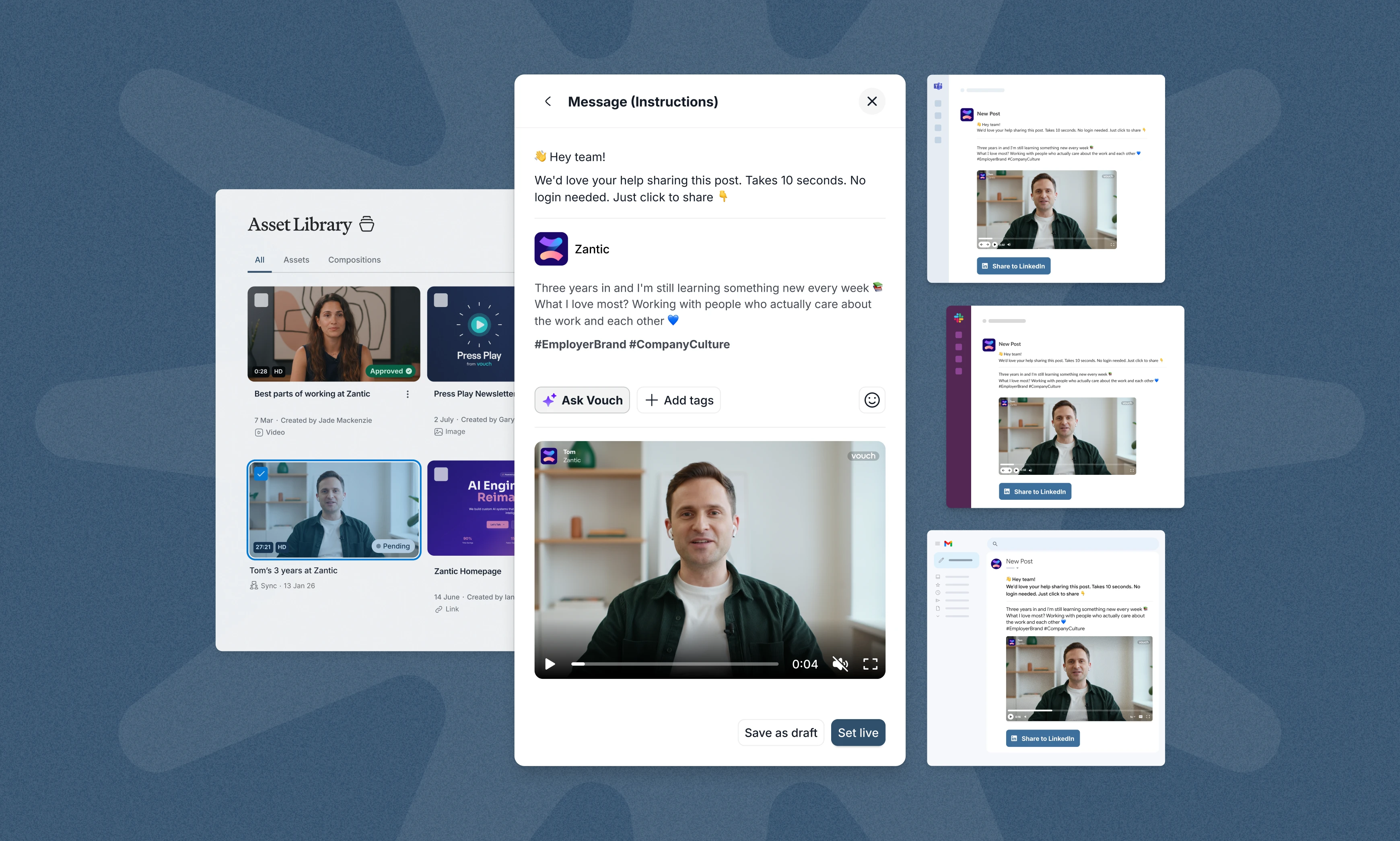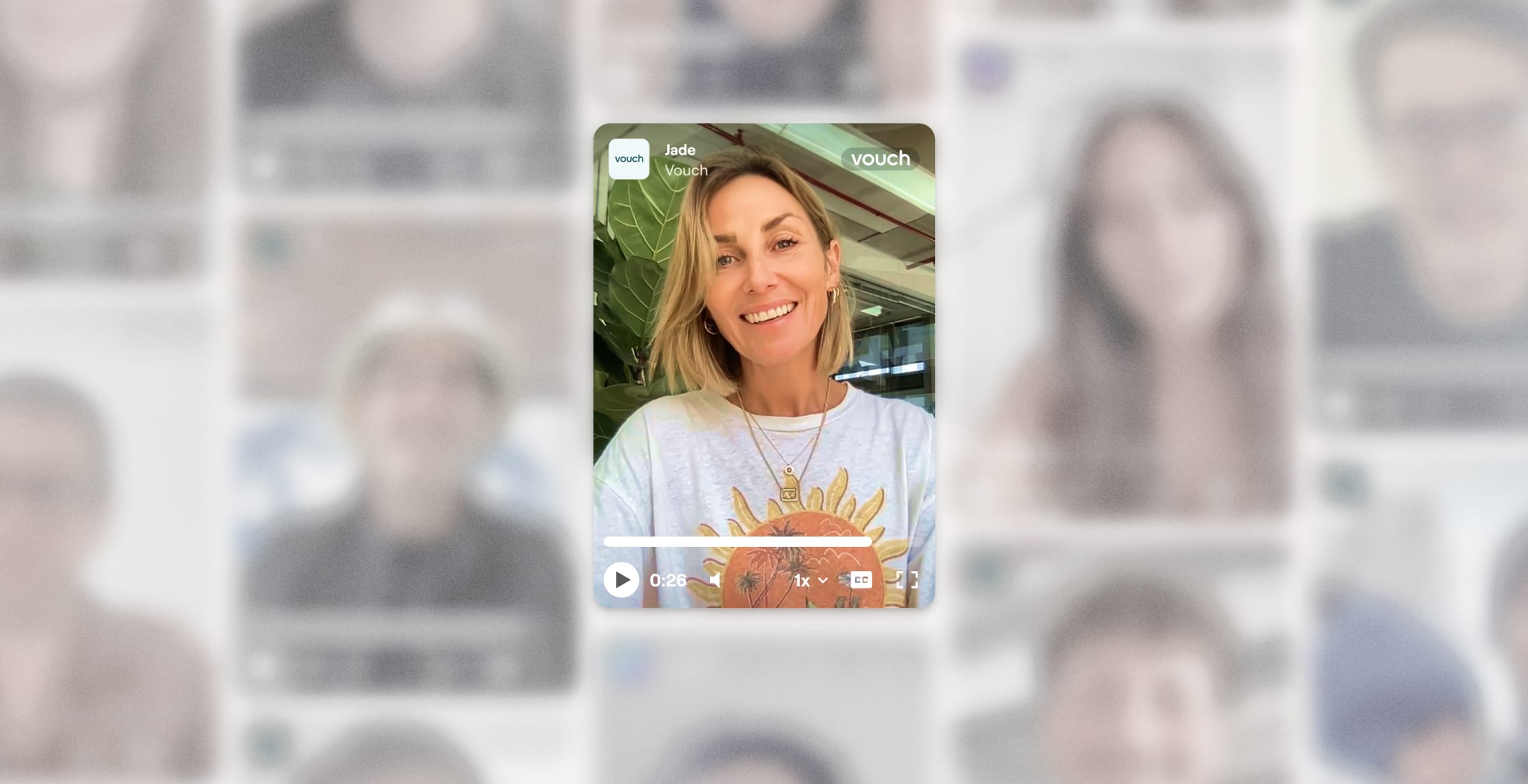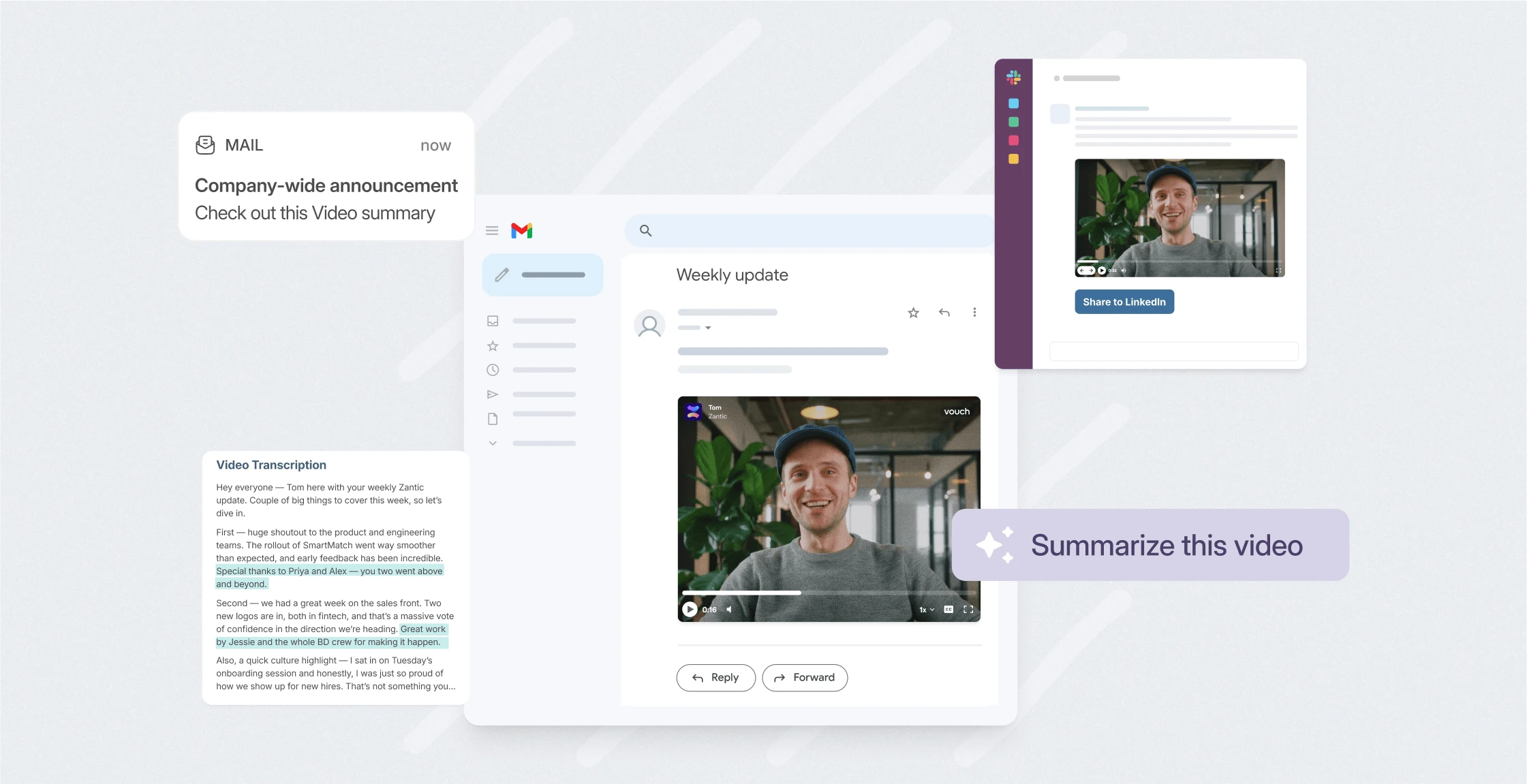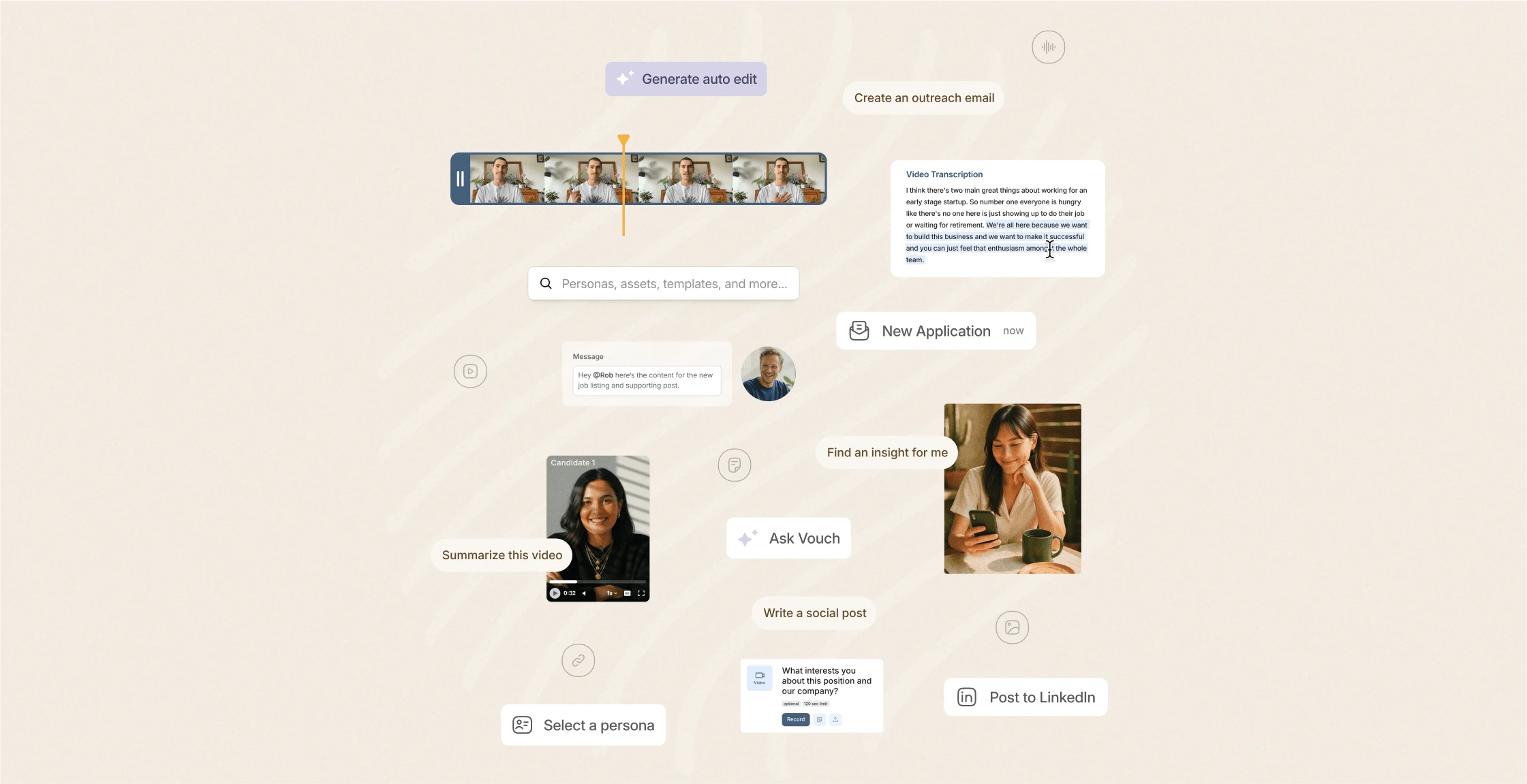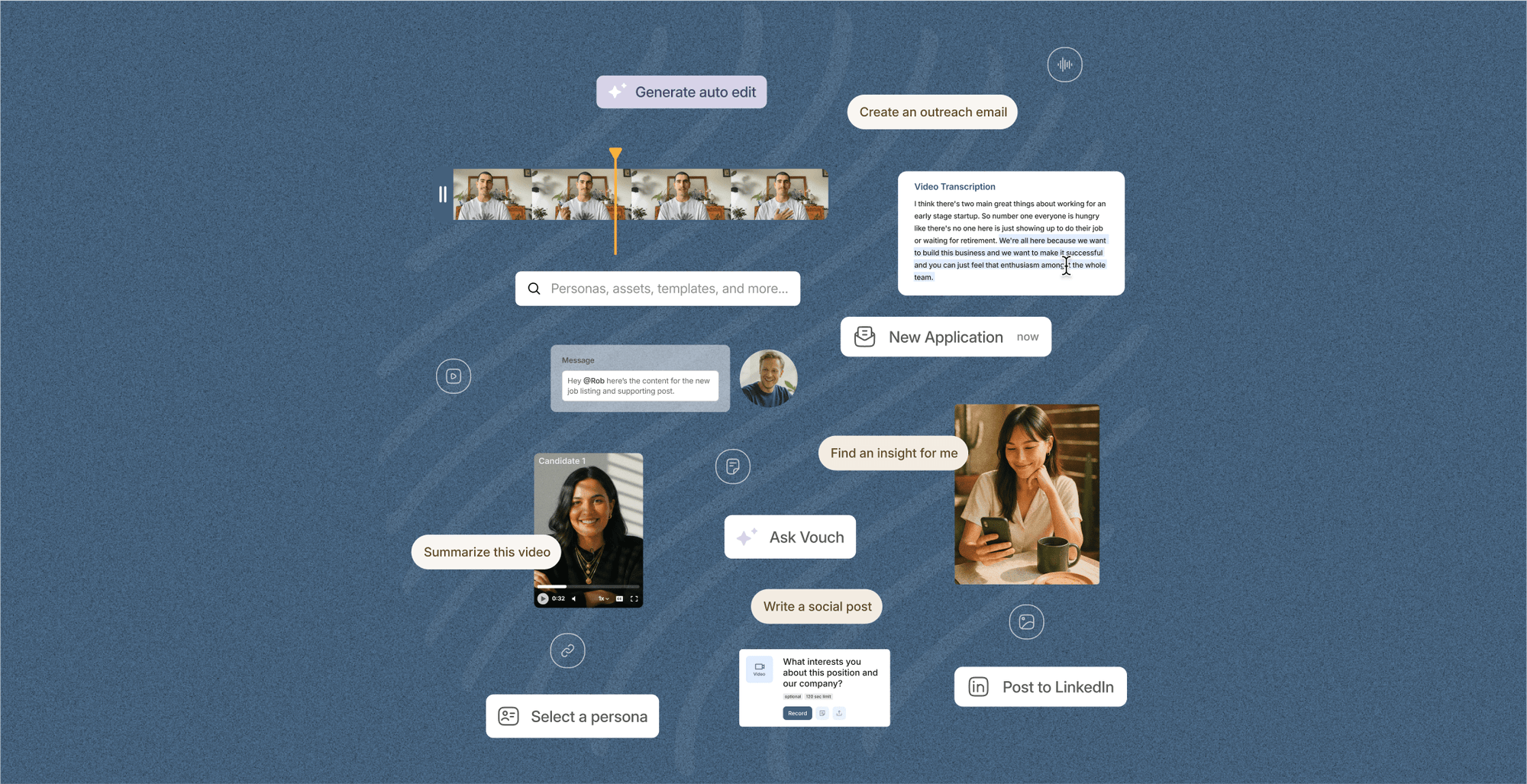Over the past decade, personalizing content and customer experiences has become essential for marketers who want to stand out in a landscape that's overly saturated with generic advertising.
Considering on average, reports suggest that most people see up to 10,000 ads a day!
This includes online and offline ads, like billboards, PPC, Social Media ads, Video ads like YouTube, some streaming services and loads more places.
Yet, with an unprecedented number of organizations vying for top talent and prospective employees conducting more and more thorough research to choose their ideal employer, the need for Employer Brand and Talent Attraction teams to adopt this concept as part of their broader strategy has become more important than ever.
So let's dive into content personalization, and why it matters.
What is content personalization?
Content personalization in Employer branding focuses on delivering the most relevant and engaging material to your target audience and end-user based on their interests, preferences, expectations, or any other insights you might have about the prospect.
For example, personalized product recommendations based on a customer's purchase history, a customer loyalty offering to people who have been loyal to your business, and all kinds of content within the customer and applicant journey - potential customers and those who already love your business alike.
Why video content over other mediums?
When we examine different types of content, user behavior, and digital content consumption, video is now the most powerful tool available and the medium of choice for a new generation of customers and job seekers.
Video is how people consume content in their personal lives, across platforms like Facebook, Instagram, LinkedIn and Twitter, and it's how they expect to consume video in their professional lives.
People avoid irrelevant material like bulk commercials designed to appeal to everyone and not them as individual customers.
The results of the video within your personalization strategy are clear—video simply performs better than any other medium. Whether from a trust and authenticity perspective or a retention and consumption perspective, video performs better and provides a superior customer experience.
The AI-enabled workspace for talent teams.
- Unified workspace for talent teams
- Accelerate hiring with AI tools
- Auto-generate polished hiring and employer brand content
- Easily repurpose assets across all channel
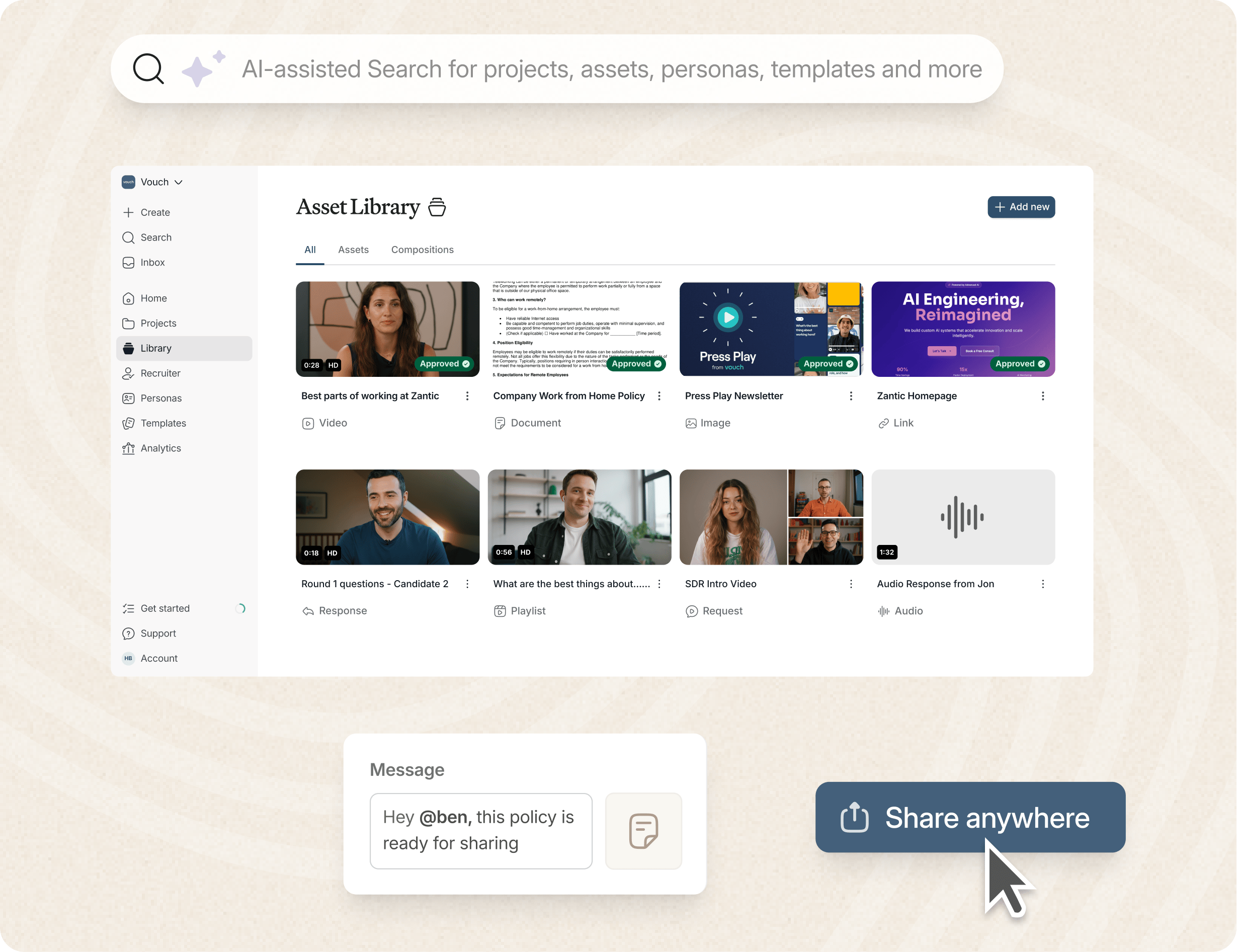
Why should I consider content personalization as part of my EB strategy?
An organization should leverage personalization for many reasons as part of their Employer Branding strategy. The first step is understanding your user experience so you can work on personalized recommendations. Diving deep into Google Analytics will be essential here, but let's look at the benefits of this type of personalization first:
1. Improved Engagement
Personalized content resonates more with individuals because it speaks directly to their interests, needs, and preferences - and this alone can give your business a substantial competitive advantage in 2026 and beyond.
This heightened relevance leads to increased engagement, as people are more likely to pay attention to and interact with this material specifically tailored to them - increasing engagement and customer satisfaction with the ultimate goals of growing sales and customer loyalty.
2. Improved Candidate Experience
When we look at the hiring process in particular as part of your employer brand by tailoring communications and content to the interests, skill sets, and backgrounds of potential employees, companies can make candidates feel valued and understood, which can positively influence their perception of the employer and each individual user experience.
3. Increased Conversion Rates
This type of personalized material marketing strategy generally results in higher conversion rates across all stages of your marketing funnel, from your sales team to your HR teams. For instance, a personalized video recruitment campaign is more likely to elicit responses and applications because it addresses potential candidates' specific aspirations or concerns.
4. Building Stronger Relationships
Personalization and individualized content help build stronger relationships between your brand and ideal customers and employees. When your company shows that it understands and caters to the unique needs and preferences of its candidates or target customers, it fosters a sense of trust and loyalty, building customer lifetime value.
5. Differentiation in a Competitive Market
In a crowded job market, personalization can help an employer stand out. Tailoring the employer brand message to address specific candidate personas can differentiate a company from its competitors, who might use a one-size-fits-all approach.
Where should I be leveraging content personalization?
Careers Websites are, of course, the most obvious place to start implementing and leveraging personalization is on your careers site.
Not only is it a channel your organization has significant control over, but it also plays a vital role in the job discovery process.
With more than 68% of millennials (Source: CareerArc) visiting your company site as part of their evaluation process and consuming an average of 9 pages per visit (Source: iCIMS), there is a significant opportunity to deliver engaging and relevant messaging.
Personalization here can be based on whether the individual is a first-time or returning visitor, their geographical location, job roles they have shown interest in, different articles they may have read, or any other data points you may have on the prospective applicant.
Retargeting
Off the back of those applicants who visit your career site but don't apply, you can follow them up by using retargeting tools to serve personalized ads based on what they engaged with.
Personalizing the ads based on what a prospective candidate has engaged with on your career site can help drive more efficient ad results. AdRoll reports that dynamic, personalized ads enjoy a 2.5x higher click-through rate and a 50% lower cost per click than static ads.
Social Media
All the key social media networks offer various ways to target specific audiences based on various characteristics, including things such as experience, interests, and location.
Creating variations of content based on the different segments and using tools such as A/B testing can allow your brand to optimize what assets are being used for these segments and drive costs down and conversion rates up, just be sure multiple platforms like Facebook, Instagram, LinkedIn, Twitter, and don't forget YouTube too!
Email Campaigns
Another area you can leverage personalization is when sending emails to potential candidates, especially since personalized emails generally enjoy a 29% higher open rate and 41% higher click-through rate than non-personalized emails.
Whether you manually send out these communications or leverage a marketing automation platform, you can adjust the material based on your knowledge of the individual, including their skills, interests, experience, and location.
What if I only have a limited content library?
Having a modest collection of video content for your Employer Brand strategy helps its effectiveness when it comes to personalization; in fact, a high-quality, well-targeted approach will consistently outperform a vast array of generic material.
To maximize the impact of your available material, consider implementing the following tactics:
1. Content Repurposing
A little bit of quality material can go a long way, especially if you have the right tools. For example, you can find key quotes from a video and use them to build a blog for your careers site, generate smaller definitive clips to use for multiple posts in a broader social media campaign, or find themes across your library and stitch together topic-related reels.
2. Storytelling
Creating content for the sake of creating it will never generate the desired results. Always think about the type of story you want to convey or the thoughts and questions you want the audience to have when consuming your EB videos.
Even with a small library, a well-told story can be highly engaging and tailored to resonate with different segments of your audience.
3. Segmentation & Targeting
Start by segmenting your audience based on available data like demographics, job titles, interests, or past interactions with your brand. Tailor your existing material to these segments. Even with a limited material library, addressing specific audience segments can make the material feel more personalized.
4. Data-Driven Insights & Refinement
Regularly analyze your content performance data to understand what resonates most with your audience or consumer data. Using these insights is a great way to tailor the presentation and distribution of your existing material for maximum impact.
5. Grow your library
The final approach you can take to address your limited library is to collect new material for it. Rather than reaching out and trying to gather videos from your entire team, look at the resource you have and the story you are trying to convey and work out what gaps you want to fill and who in your team would be best to deliver that message at the right time.
How does Vouch help brands deliver personalized content?
Vouch offers a comprehensive suite of tools to help brands not only collect and manage their video content that highlights their company culture and employee experiences but also the tools to distribute that material content across a range of channels.
From artificial intelligence content management and tagging features to help categorize your material at scale to auto-generated reels to help repurpose and extend your existing library, Vouch has the tools to roll out personalized employer brand resources effectively.
FAQs
What tools can I use for content personalization?
Various tools, such as CRM systems, marketing automation platforms, and analytics tools, are available to enhance your customer journey. These tools can help you gather customer data and segment customer engagement through customer behavior, allowing you to deliver the right content more effectively.
By leveraging these resources, you can develop a content strategy with enhanced data collection systems that ensure a personalized customer experience and create a truly personalized experience.
Why is content personalization important in employer branding?
Implementing a content personalization strategy helps you connect with potential employees on a deeper level, making them feel valued and understood. Using a personalization engine and data analysis, you can provide content personalization examples that significantly enhance your employer brand.
This approach, similar to creating a tailored shopping experience with a personalization tool, makes your company more attractive to high-quality candidates.
How can content personalization be integrated into the recruitment process?
Integrate personalization by tailoring communication at every stage, from initial contact to onboarding.
Use personalized messages to address candidate concerns, highlight relevant opportunities, and create a more welcoming experience.
For example, customizing interview invitations with specific details about the role and team can make candidates feel more valued. Continuously personalizing interactions throughout the recruitment process helps build stronger relationships with candidates.
What are some examples of successful content personalization in employer branding?
Successful examples include targeted social media ads, personalized email campaigns, and employee testimonials that reflect the diverse experiences within your company. These strategies can showcase your commitment to individual candidate experiences.
For instance, personalized videos or stories highlighting different career paths can make your brand more relatable. Highlighting real employee experiences helps candidates envision themselves as part of your team.
How can I measure the effectiveness of personalized content?
Track key metrics such as engagement, application conversion, and candidate feedback. Analyzing these metrics will help you understand the impact of your personalized content and make necessary adjustments. Tools like Google Analytics, surveys, and A/B testing can provide valuable insights into how your video is performing. Regularly reviewing and optimizing your video ensures that your personalization strategy remains effective.
Conclusion
When it comes to employer branding content personalization, the key lies in creating a unique and tailored experience for your audience. By leveraging personalized content, you can effectively engage with potential candidates on a deeper level, showcasing your company culture and values in a way that resonates with them personally. This approach helps attract top talent and fosters a sense of connection and authenticity, ultimately strengthening your employer brand.
If you want to revolutionize your employer branding strategy through content personalization, don't hesitate to take the next step. Contact Vouch today for a free demo and discover how personalized content can elevate your employer brand to new heights. Embrace the power of customization and watch your recruitment efforts flourish like never before!
Like to try Vouch?
Loved by companies like Canva, Nike, Cisco, HubSpot, Amazon, and more, tools like Vouch make leveraging video in your business remarkably easy.
Be sure to book a Vouch demo today and chat with a video content expert.
You might also like

Elevate Your Brand Today With Vouch
Discover how Vouch can accelerate talent acquisition while helping you stay on-brand.

